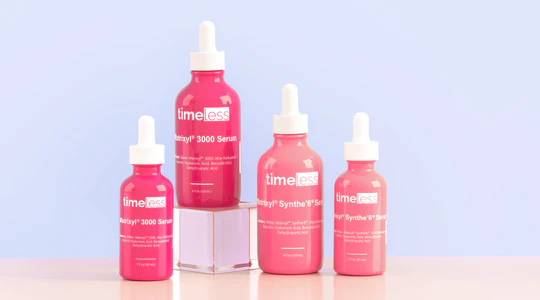Peptides are one of the most effective ingredients in skincare products today. These chains of proteins are known to boost collagen production, improve skin elasticity, and help reduce the visible signs of aging. Matrixyl® Synthe’6®, a powerful polypeptide known for its anti-aging benefits, has gained a lot of well deserved attention in recent years. In this blog, we will explore what Matrixyl® Synthe’6® is, its benefits, and how to incorporate it into your skincare routine.
Mom always said to take your vitamins, and it turns out one of the best vitamins, not just for your overall health but specifically for stress, energy levels, and calm, clear skin, is Vitamin B5!
There are actually 8 types of Vitamin B, all of which are water soluble and help convert the food you eat into energy.











